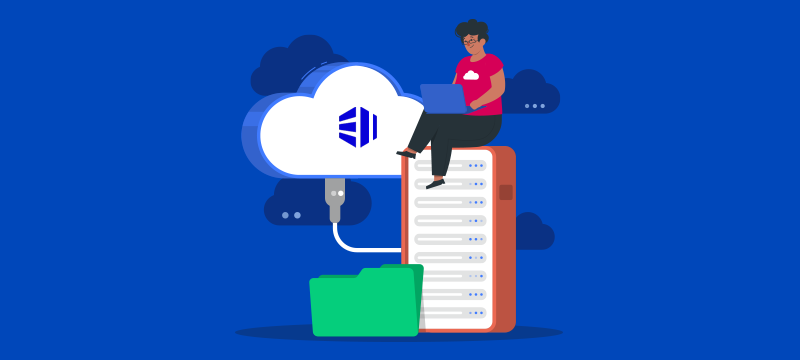When businesses migrate to the cloud, they may not necessarily have the IT experience or the time to adequately take care of tasks, like monitoring, optimisation and resource management, that are integral to managing their cloud infrastructure. The solution is to opt for managed cloud services where these and other tasks are taken care of by the service provider. For this to be successful, however, a business must choose the right cloud solutions partner. Here, we explain what you should look for in a managed cloud provider.
Managed Cloud Providers – An Overview
Essentially, a managed cloud provider is a cloud vendor that provides additional management services to its customers. Businesses that outsource these management responsibilities to their vendors benefit from a reduced burden on their IT teams, providing them with more time to focus on business-oriented projects while reducing the cost of acquiring in-house expertise.
As no one will understand the infrastructure better than the vendor that runs it, it makes complete sense to hand these tasks over to the service provider. What’s more, it is possible to create bespoke managed solutions where the cloud provider can deliver an extended range of services to suit the needs of the customer.
What to look for in a Managed Cloud Provider
Below, we explain the key things you should look for in a provider when seeking a managed cloud solution.
- Expertise and experience
If you are handing over responsibility for managing your cloud infrastructure, the service provider must have the expertise to carry out the tasks effectively. With there being so many cloud models today, it is important that besides being able to manage monitoring, optimisation and resource management, your provider also knows how to work with public, private, hybrid and multi-clouds, as well as with solutions such as IaaS, PaaS and SaaS. - Security and compliance
Downtime, data breaches, software corruption and ransoms are just some of the disasters that can result from a cyber attack. Today, these attacks are more sophisticated and pernicious than ever and as a result, cybersecurity has to be a major consideration when choosing a managed cloud provider.You should look for a provider, like eukhost, that employs in-house cybersecurity expertise and which deploys advanced security tools, such as next-gen FortiGate firewalls, to protect your cloud infrastructure from intrusion, malware and DDoS attacks. Your provider must also have an understanding of your company’s compliance and governance needs so that it can help you achieve compliance with regulations like GDPR and PCI DSS.
Your chosen provider should also have solutions for disaster recovery and business continuity, such as continuous cloud backups and the ability to maintain uptime even if natural disasters take a data centre offline.
- Latest technologies
Technological development moves at pace, so being stuck with outdated infrastructure can put your business at a disadvantage. Make sure your cloud provider invests in the latest hardware and applications. Look for ISO2000, ISO9001 and ISO27001-accredited data centres, with redundant and hyper-converged architecture to protect virtual cloud servers from hardware and network failure. Hardware should be fast and reliable, so seek out Intel Xeon servers with superfast SSD storage.At the same time, your provider should provide a comprehensive software stack to ensure security, reliability and performance.
- Service Level Agreements (SLAs)
A good managed cloud provider will have the confidence in its capabilities to offer customers guarantees in the form of SLAs. These should cover several areas of performance concerning its responsibilities to its customers. Typical SLA examples with managed cloud services are to ensure 100% uptime and that scalability can be achieved on-demand. An SLA should also explain what will happen if the service provider fails to meet their stated minimum levels of service. - Automation
Cloud service providers have access to some incredibly advanced tools to help them provide better services to their customers and reduce the possibility of human error. These include next-gen firewalls that can detect and prevent evolving threats, and server monitoring tools that can optimise performance automatically or identify hardware issues and prevent downtime.
These kinds of tools improve the quality of the cloud service and help customers maintain high levels of productivity, so it is beneficial to choose a host that makes use of them. - 24/7 technical support
There is a world of difference between customer support and technical support. With a managed cloud provider, you want to have both. Customer support will provide you with help on things like sales and billing, but technical support is there to give you expert advice on solving any hosting-related issues. If you have a problem with your cloud service, it is vital to have expertise on hand, regardless of the time, to put matters right. With eukhost, you will have 24/7 access to experienced engineers, with expertise in all relevant areas.
Conclusion
Migrating to a managed cloud solution provides you not only with the advantages of cloud technology but also with a range of valuable management services. However, to ensure your move to a managed solution is effective, it is important to choose the right service provider.
Hopefully, the information above will make that easier for you. Find out more about our Managed Cloud Hosting.



